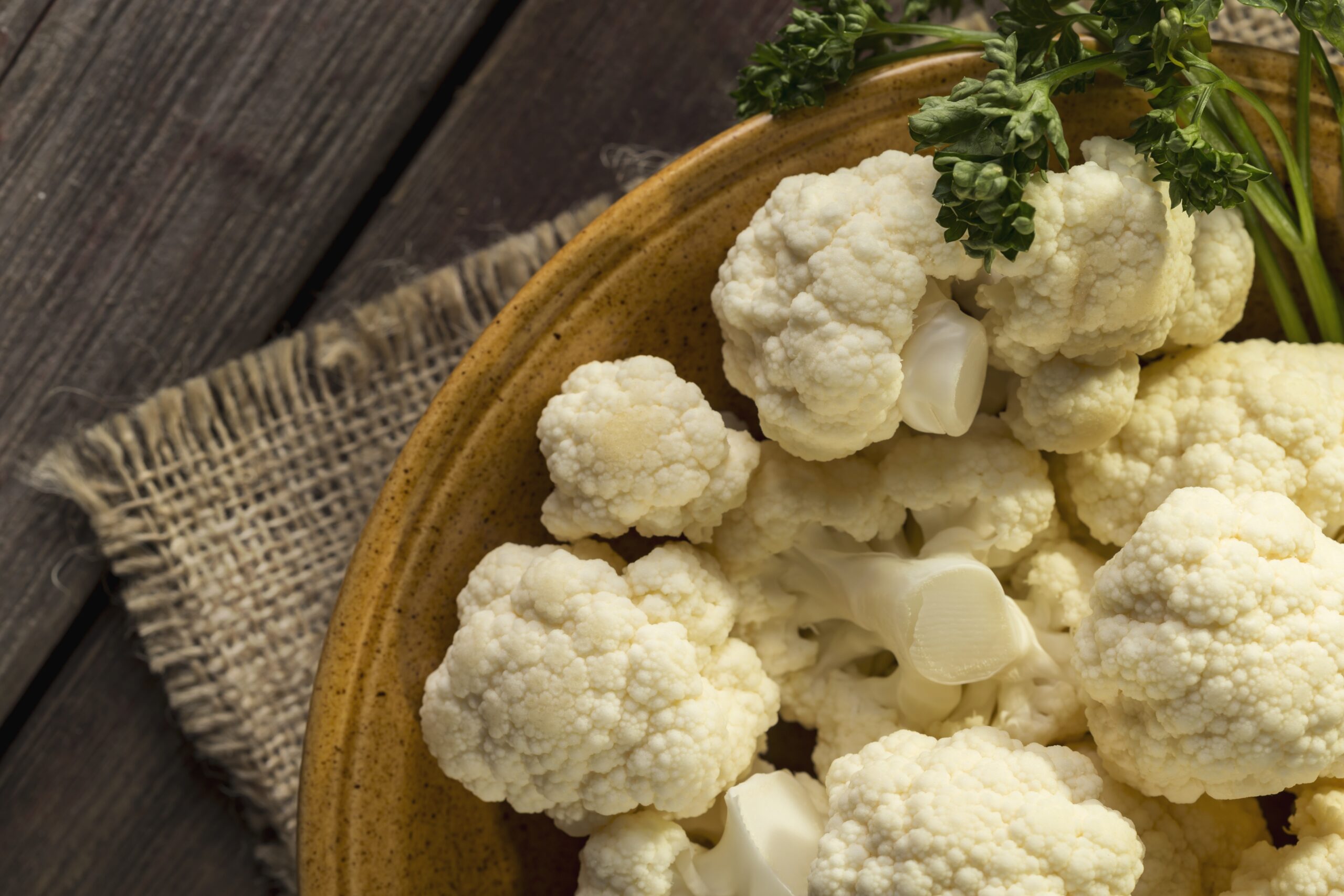By Sean Zucker —
Cauliflower is having a moment right now. One look at Trader Joe’s cauliflower offerings, from stir-fry to burgers and pizza crusts, and you’ll realize this is not your mother’s cauliflower. Of course, there is good reason for this recent surge of cauliflower products. This vegetable has nearly no end to its cauliflower health benefits and uses.
The nutritional value of cauliflower is superb. It is exceptionally high in fiber, a good source of antioxidants and contains many of the vitamins and minerals the body needs. Cauliflower’s texture means it can be seamlessly be repositioned as a substitute for starch, while its versatility allows it to easily be incorporated into a diet and experimented with in recipes. And since one entire head of cauliflower contains a scant 146 calories, it’s a perfect component for low-carb diets and as an alternative for the more caloric elements in everything from pizza to lattes.
The benefits of cauliflower go beyond simply being a starch alternate with a low-calorie substitute. Several studies are now suggesting consuming cauliflower may significantly decrease your risk for various cancers. A Rutgers University study noted that cauliflower, as well as broccoli, have natural ingredients that reduce the risk of developing hereditary cancers. A separate Rutgers study also found that cauliflower is specifically effective in preventing prostate cancer and even has the potential to assist in its treatment.
The benefits of cauliflower don’t end there. The vegetable is a natural teeth whitener but unlike artificial whitening products, won’t damage or over-sensitize teeth over time. Additionally, cauliflower is rich in sulforaphane, a plant compound that reduces the risk of heart disease and diabetes.
Remarkably, cauliflower nutrition is also high in choline, a nutrient commonly under-consumed but that plays a major role in maintaining the integrity of cell membranes and supporting the metabolism, among other benefits. Choline is also crucial in preventing the risk of neurological disorders like dementia and Alzheimer’s.
Cauliflower apparently tastes good too. Grubhub, in fact, recently reported that cauliflower bites were the highest trending, most popular item on the platform this past spring—growing 536% in popularity over the previous period.
Bottomline: Cauliflower tastes good, comes in lots of new forms, whitens your teeth and helps you battle a whole range of medical issues and challenges. So why wait? Eat some.










